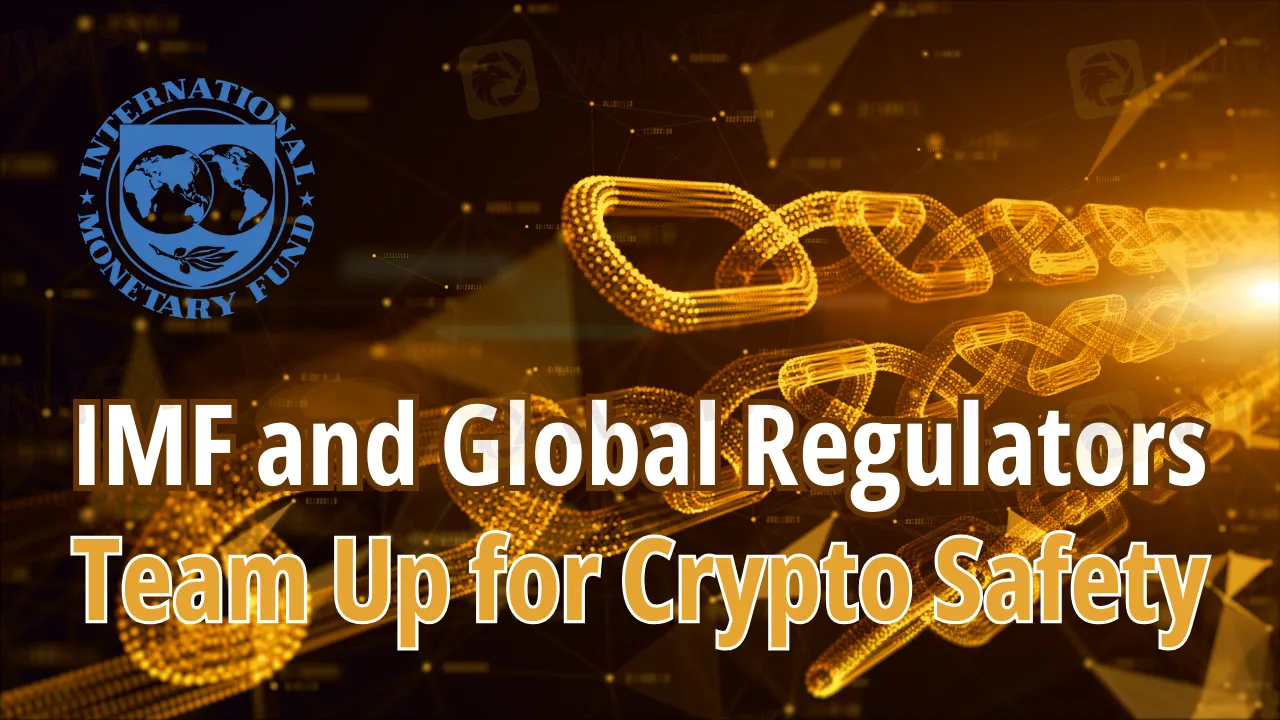简体中文
繁體中文
English
Pусский
日本語
ภาษาไทย
Tiếng Việt
Bahasa Indonesia
Español
हिन्दी
Filippiiniläinen
Français
Deutsch
Português
Türkçe
한국어
العربية
IMF and Global Regulators Team Up for Crypto Safety
Abstract:Global financial authorities & IMF introduce a plan to regulate cryptocurrency, aiming to ensure global economic safety. Highlights from the G20 summit discussion.

In a fresh move to safeguard the global economy, the International Monetary Fund (IMF) and world financial regulators rolled out a plan on Thursday, targeting potential risks from cryptocurrencies.
The chief concern? Crypto might throw a wrench in the larger global economy and finance system. Some folks haven't been playing by the rules, a challenge flagged by the G20's financial guard dog, the Financial Stability Board, and the IMF.
Despite all the buzz around cryptocurrencies promising quicker, cheaper international transactions and hopes to include more people in the banking system, these benefits haven't really hit the ground running yet.
The experts have a warning: if everyone jumps on the crypto train, it might mess up money policies by countries, pull funds from real-world businesses, and even shake the world's financial foundations. This, the authorities say, could lead to bigger problems like money laundering and other financial crimes.

Now, they've laid down some deadlines. Countries part of the IMF and G20 have been given a time frame to put in place the newest rules around cryptocurrency, as suggested by the Financial Stability Board and IOSCO, the big-shot group of securities regulators worldwide.
This whole push towards stricter rules didn't come out of the blue. Just last year, the FTX crypto exchange went belly up, causing a market earthquake and burning a hole in investors' pockets.
Before the month ends, G20 leaders will have a closer look at this roadmap at a summit in New Delhi.
Interestingly, while the European Union is ahead of the game with a full set of crypto rules, the rest of the world's approach seems a bit scattered. The paper further nudged governments to keep their finances tight to avoid heavy inflation, which can weaken regular money and push folks toward cryptos. And, to clear up any confusion, they're urging to make crypto tax rules crystal clear.
Keen on crypto updates? There's an app for that! Check out the WikiFX App for your daily crypto news.
Download link: https://www.wikifx.com/en/download.html

Note: Always be cautious when downloading apps and sharing personal information.
Disclaimer:
The views in this article only represent the author's personal views, and do not constitute investment advice on this platform. This platform does not guarantee the accuracy, completeness and timeliness of the information in the article, and will not be liable for any loss caused by the use of or reliance on the information in the article.
Read more

Japan Issues Urgent Warning on $700M Unauthorized Trades
Japan's FSA warns of $700M in unauthorized trades from phishing attacks on brokerage accounts. Cybersecurity threats continue to rise in the country.

Tradu Joins TradingView for Seamless CFD and Forex Trading
Tradu, a global trading platform, integrates with TradingView for seamless CFD and forex trading, offering transparency, tight spreads, and fast execution.

Asian Scam Operations Worth €35 Billion Spreading Globally, UN Warns
The UN report reveals the growing threat of transnational crime, driven by AI, money laundering, and scams across Asia, Africa, and Latin America.

Why Investors Are Focusing on the US Bond Market Right Now
The US bond market's recent volatility is raising concerns. Learn why investors are paying close attention and how it may affect US tariffs and the economy.
WikiFX Broker
Latest News
FCA Issues Alerts Against Unauthorised and Clone Firms in the UK
Consob Orders Blackout of 9 Fraudulent Financial Websites
eXch Exchange to Shut Down on May 1 Following Laundering Allegations
How a Viral TikTok Scam Cost a Retiree Over RM300,000
FCA Proposes Simplifying Investment Cost Disclosure for Retail Investors
JT Capital Markets Review
Fresh Look, Same Trust – INGOT Brokers Rebrands its Website
Tradu Joins TradingView for Seamless CFD and Forex Trading
Japan Issues Urgent Warning on $700M Unauthorized Trades
171 years! One of this country’s largest crypto-related fraud
Currency Calculator


